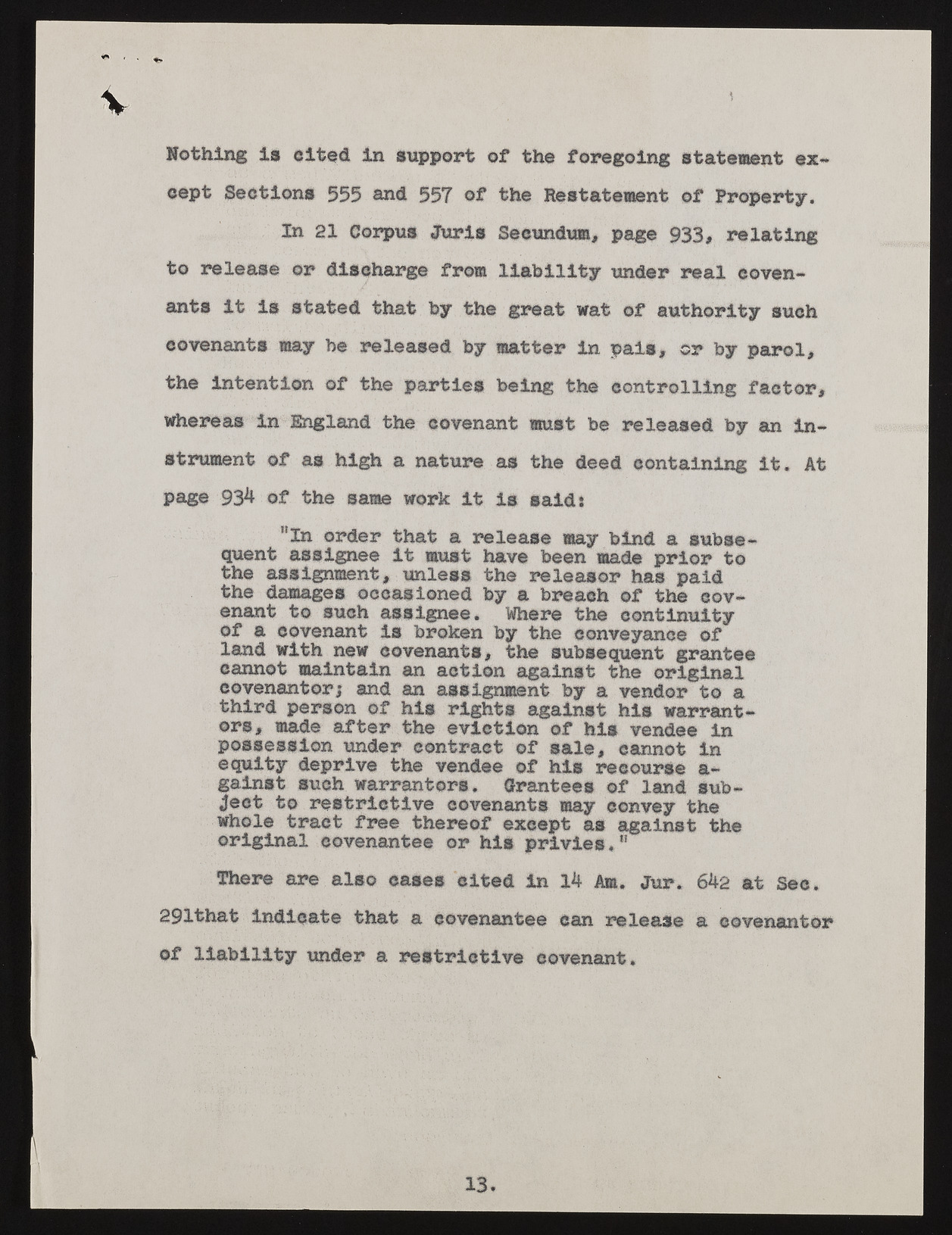Copyright & Fair-use Agreement
UNLV Special Collections provides copies of materials to facilitate private study, scholarship, or research. Material not in the public domain may be used according to fair use of copyrighted materials as defined by copyright law. Please cite us.
Please note that UNLV may not own the copyright to these materials and cannot provide permission to publish or distribute materials when UNLV is not the copyright holder. The user is solely responsible for determining the copyright status of materials and obtaining permission to use material from the copyright holder and for determining whether any permissions relating to any other rights are necessary for the intended use, and for obtaining all required permissions beyond that allowed by fair use.
Read more about our reproduction and use policy.
I agree.Information
Digital ID
Permalink
Details
More Info
Rights
Digital Provenance
Publisher
Transcription
V Nothing 1* eited in support of the foregoing statement except Sections 555 and 557 of the Restatement of Property. In 21 Corpus Juris Secundum, page 933, relating to release or discharge from liability under real covenants it Is stated that by the great wat of authority such covenants may be released by matter In pals, or by parol, the intention of the parties being the controlling factor, whereas in England the covenant must be released by an instrument of as high a nature as the deed containing it. At page 934 of the same work it is said: "In order that a release may bind a subsequent assignee it must have been made prior to the assignment, unless the releasor has paid the damages occasioned by a breach of the covenant to such assignee. Where the continuity of a covenant is broken by the conveyance of land with new covenants, the subsequent grantee cannot maintain an action against the original covenantor,* and an assignment by a vendor to a third person of his rights against his warrantors, made after the eviction of his vendee in possession under contract of sale, cannot in equity deprive the vendee of his recourse a- gainst such warrantors. Grantees of land subject to restrictive covenants may convey the whole tract free thereof except as against the original covenantee or his privies*11 There are also cases cited in 14 Am. Jur. 642 at Sec* 291that indicate that a covenantee can release a covenantor of liability under a restrictive covenant. 13*

